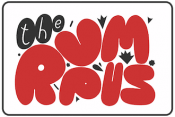Subgenres: LGBTQ Voices

The Rumpus
The Rumpus strives to be a platform for marginalized voices and writing that might not find a home elsewhere and to lift up new voices alongside those of more established writers they love. The editors publish original fiction, essays,... Read more

Wax Paper
The Wax Paper is a broadsheet publication open to all forms of written word, imagery, and collected conversation.

Bear Review
The editors of Bear Review are open to a wide variety of poetry, and they read submissions ten months of the year. They close regular submissions during November and December while receiving entries to their single-poem contest. The... Read more

Alchemy - A Journal of Translation
Alchemy publishes fresh, engaging textual and visual translations as well as experimental works that challenge the act of translation. Alchemy welcomes translations of poetry, prose, dramatic works/dialogues, letters, reviews, ... Read more

Waxwing
Waxwing is a literary journal promoting the tremendous cultural diversity of contemporary American literature, alongside international voices in translation. The editors believe that American voices are, at their cores, both... Read more
akinoga press
akinoga press is a Baltimore-based micro press that specialzes in hand-bound chapbooks of a spacious/minimalist/austere flavor, though on the lookout for anything small, quiet, odd, easily-missed, and a hundred percent needs to be read.
DMQ Review
DMQ Review, one of the longest continuously running online journals in the nation, welcomes American and international voices from all cultural identities in the English language. Their current focus is the prose poem. They also feature... Read more

Running Wild Publishing
Running Wild Press publishes great stories with great writing that don’t fit neatly in a box. RIZE Press publishes great genre stories written by those from underrepresented groups. Monstrous Books publishes great novels and graphic novels of... Read more

The Lune
Named after the “American haiku” co-invented by Jack Collom and Robert Kelly, and inspired by the sense of poetry as correspondence, The Lune’s first editions were unbound chapbooks housed in pre-stamped envelopes and sold at bookstores... Read more




